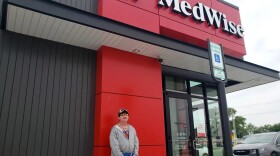Bram Sable Smith - KFF Health News
-
A mom took her 3-year-old to the ER last December. While they were waiting to be seen, the toddler seemed better, so they left without seeing a doctor. Then the bill came.
-
While Florida's amendment failed, similar measures were approved in other states. Yet, much of the landscape won’t change much immediately, as medical providers navigate the legal hurdles that remain.
-
Doctors, patients and hospitals have railed for years about processes that insurers use to decide whether they’ll pay for drugs or procedures. The Biden administration announced a crackdown in January, but some state lawmakers are looking to go further.
-
Adults who develop one autoimmune form of diabetes are often misdiagnosed with Type 2. Those wrong diagnoses make it harder to get the appropriate medications and technology to manage blood sugar.
-
A chain is using its knowledge of how to serve customers and locate shops to enter the health care industry. Experts question how the explosion of convenient clinics will affect care costs and wait times.
-
Laws granting rights to unborn children have spread in the decades since the U.S. and Missouri supreme courts allowed Missouri’s definition of life as beginning at conception to stand. Now, a lawsuit shows how sprawling those laws have become.
-
Missouri is considering making it a felony to jack up temporary health care staffing prices during a statewide or national emergency. It’s one of at least 14 states looking to reel in travel nurse costs, after many hospitals struggled to pay for needed staffers earlier in the pandemic.
-
Drug pricing experts predict the move will help other initiatives to bring lower-cost insulin to market and maintain pressure on Eli Lilly to keep its prices down.
-
Twitter has been a hotbed for the insulin access movement and activism surrounding other medical conditions - helping propel concern about the prices into policy. Can it continue to win with hashtags?
-
The federal government made 485 payouts, totaling $410 million, in malpractice cases involving community health centers nationwide from 2018 through 2021. Search this chart to find how much was paid out for each local clinic.










